Dental Implants Allen
Replacing Missing Teeth Seamlessly
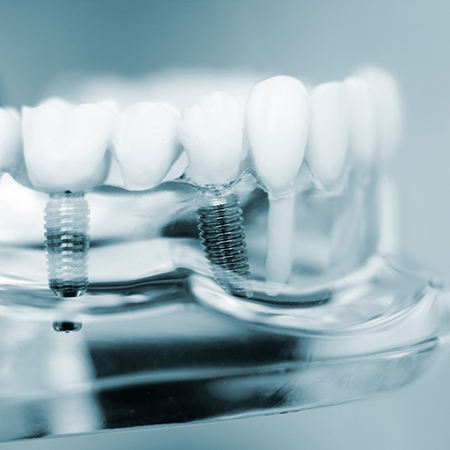
If you’re missing one, some, or all of your pearly whites, you already know that tooth loss can take a bite out of your quality of life. Those gaps in your smile can make it more difficult to eat your favorite foods, speak clearly, and feel good about your appearance in general. As if that weren’t enough, tooth loss can lead to poor oral health, jawbone loss, and systemic health issues! While traditional tooth replacement options like dentures and dental bridges are better than ever, they still leave a lot to be desired.
That’s why we almost always recommend replacing missing teeth seamlessly with dental implants! This state-of-the-art treatment is like rebuilding your pearly whites with the next best thing, which is why dental implants in Allen are regarded as the gold standard of tooth replacement. Give us a call today to schedule your consultation and begin your journey towards the complete, confident smile you deserve!
Why Choose Advanced Dental Care of Allen for Dental Implants?
- Expert Certified Prosthodontist On-Staff
- Every Step of Treatment Completed Under One Roof
- Reasonable Prices with No Hidden Fees
What Are Dental Implants?

Dental implants are designed to replace the entire structure of a missing tooth, not just the portion above the gumline. To do this, a small metal implant post, typically made of titanium, is placed into the jawbone to mimic the roots of the missing tooth. Not only does this form a stable, potentially permanent foundation for your new smile, but it stimulates the jawbone to prevent deterioration. From there, a small connector piece called an abutment attaches the final restoration to the implant post. The final custom-made crown, bridge or denture will be crafted to match the rest of your pearly whites so that it blends in seamlessly. Dental implants look, feel, and function just like natural teeth, and with the proper care, you can easily count on them for decades to come.
The 4-Step Dental Implant Process
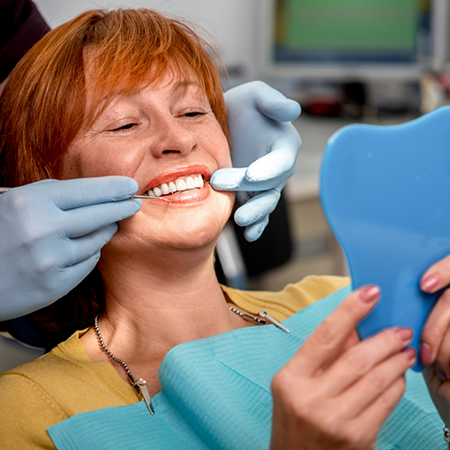
The long-term success and functionality of your dental implant is contingent on the process that is used to place and restore it. While this process is certainly much longer than that of dentures or dental bridges, the long-term benefits are well worth the time and effort. Dr. Kar is a highly experienced dentist, and his advanced training in prosthodontics equips him to provide the most lifelike restorations possible. When you visit our practice for your consultation, he will walk you through what you can expect during your tooth replacement journey. In general, this is how dental implants work:
Initial Dental Implant Consultation
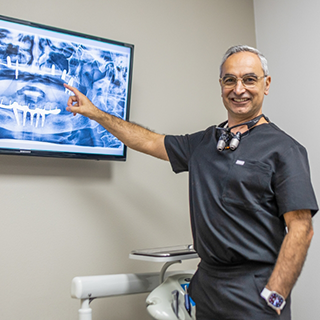
The process begins when you contact us to schedule a consultation. During your appointment, Dr. Kar will get to know you and understand your goals for your smile. Then, he’ll review your medical history and inspect your remaining teeth, gums, and jawbone. If you’re not initially a good candidate for dental implants, he’ll work with you to plan any necessary preliminary treatments such as a bone graft, periodontal therapy, or tooth extraction. Then, he’ll work with you to determine which type of dental implant is best for you and plan your dental implant surgery.
Feel free to ask any questions you may have about the process, costs, and benefits associated with the procedure. We want you to commit to your treatment with confidence!
Dental Implant Surgery
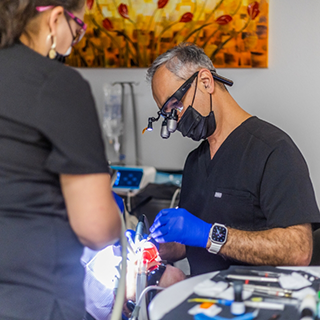
Many practices in our area do not have anyone on-staff who is qualified to place dental implants; they must refer patients to other doctors for this portion of their restorative procedure. However, Dr. Kar is a certified prosthodontist and implant dentist in Allen, which means he has been specially trained in the replacement of damaged and missing teeth. A prosthodontist has at least three years of advanced training beyond dental school that enables them to help patients who have cases that require more advanced treatment.
During your placement surgery, Dr. Kar will create small incisions in your gums in order to insert the implants. You should be comfortable during this stage of your treatment because our on-staff certified anesthesiologist is able to administer IV sedation before the process so you don’t feel any pain.
Dental Implant Osseointegration & Abutment Placement
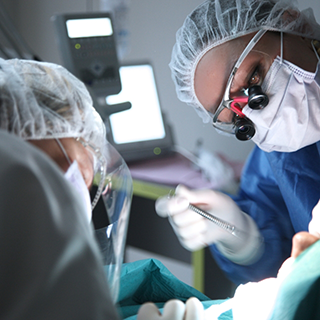
Once your implants are in place, a natural biological process known as osseointegration will begin. Your jawbone will fuse with the implants, enabling them to provide the strongest base of support possible for your new teeth. Osseointegration typically takes at least a few months.
With some types of implant procedures, it is necessary to place abutments after osseointegration. Abutments are small connector pieces that serve to secure your restorations. Placing them requires a second minor surgery. (In some instances, such as for patients who are receiving All-on-4 treatment, this second surgery is not necessary.)
Delivery of Dental Implant Restorations
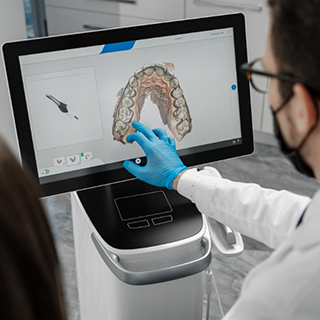
As a prosthodontist, Dr. Kar specializes in creating crowns, bridges, and dentures that are the next best thing to natural teeth. When it is time to design your final restoration, our team will take impressions of your teeth, which will serve as the basis for creating your restored smile. A laboratory will create your restoration, and Dr. Kar will verify that its fit and color are just right before he attaches it to your implants. Then, you can go on your way and begin to enjoy all the remarkable benefits of dental implants in Allen.
Benefits of Dental Implants

Each year, dentists in the U.S. place a total of more than 5 million dental implants. When you understand all the benefits that this treatment offers, it is easy to see why it is so popular! Dental implants in Allen can improve the quality of everyday life, support overall health, and provide advantages that last for decades. Below, you will discover some specific ways in which they may be able to help you.
Day-to-Day Benefits

Some of the day-to-day benefits of dental implants in Allen include:
- Improved self-confidence. Smile with confidence, knowing you have a beautiful, permanent set of new teeth. As a prosthodontist and experienced implant dentist in Allen, Dr. Kar is able to design amazingly lifelike restorations.
- Improved comfort. Dental implants function just like real teeth. This helps remove any discomfort caused by bulky dentures. You will look and feel great!
- Improved speech. It can be difficult to speak with traditional dentures, especially if they don’t fit just right. Dental implants can help restore your speech and make it easier to communicate.
- Improved convenience. Imagine no longer having to run to the bathroom first thing in the morning to put on your dentures. Morning, noon, or night, you will never have to worry about your dental implants looking and feeling anything besides great.
- Comfort while chewing. With dentures, some foods are just off the table. You can get back to eating the foods you love with permanent, sturdy dental implants. Once again, you will be able to bite into apples, corn on the cob, and steak with confidence!
Health Benefits

Dental implants support oral and overall health in a few different ways:
- Jawbone preservation. Dentures and traditional bridges can result in increased bone loss over time. Dental implants actually prevent bone loss and help your jaw to remain as healthy and strong as possible.
- Protection for natural teeth. Traditional bridges require that the abutment teeth be significantly filed down, but dental implants are self-supporting and are free of this issue.
- Overall health benefits. Tooth loss is often associated with gum disease, and gum disease is a risk factor for numerous health problems, including heart attack and stroke. Tooth loss is also correlated with a shortened life expectancy. Dental implants may help to mitigate these problems.
Long-Term Benefits

You will begin to benefit from dental implants shortly after you receive them, and they may continue to reward you for decades to come. Their long-term benefits include:
- Durability. Dental implants can stand the test of time. With proper care, they can last you a lifetime!
- Save money. The longevity of dental implants may make them a better long-term value than treatments that are cheaper upfront but that need periodic replacement, such as traditional dentures.
- Save time. Because you can treat dental implants similarly to natural teeth, you will not have to worry about spending a lot of time on things like denture maintenance.
Would you like to learn how dental implants may be able to help you personally? Contact us today to schedule your tooth replacement consultation.
Dental Implant Case Study-Ali
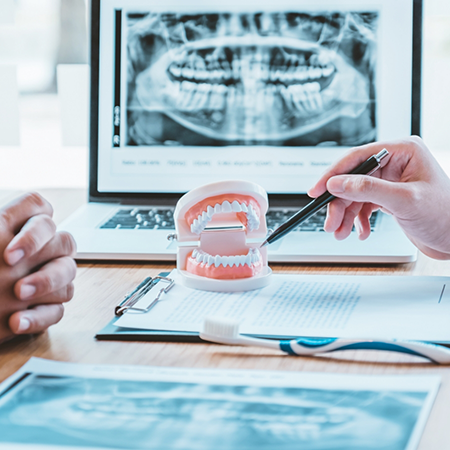
When Ali approached us, he was concerned about his smile’s appearance, health, and function. He had already received multiple dental bridges and crowns, but due to wear and tear, he was not satisfied with how his smile looked or felt. Finally, when he broke one of his dental bridges during a workout at the gym, enough was enough.
Fortunately, he found our practice, where we have the right experience and technology to give him a new smile that he can rely on. Dr. Keyvan Kar is a highly trained prosthodontist who specializes in giving patients their healthy smiles back. Keep reading to learn exactly how we transformed Ali’s smile and life with dental implants.
Ali’s Smile Before Dental Implants
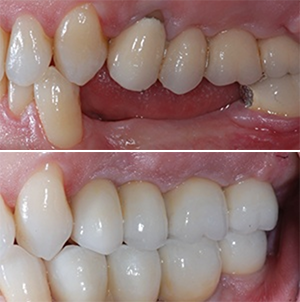
Before receiving treatment from Dr. Kar, Ali had 8 missing teeth, 5 cavities, and 6 defective restorations. Once one of his dental bridges collapsed at the gym, Ali simply had to come see us. As a prosthodontist, Dr. Kar specializes in cases just like this one.
During a consultation with Ali, he explained the health effects that missing and decayed teeth can have. Prosthodontists have extensive training and knowledge in the restoration of teeth, bone, and specifically the use of dental implants. When Ali made it clear that he was interested in fixed prosthetics, Dr. Kar knew that dental implants were the answer. Especially for Ali’s tooth loss and desired goals, dental implants will be able to preserve his jawbone while also keeping his remaining natural teeth intact.
Completing Ali’s Smile

After we developed a personalized treatment plan for Ali, Dr. Kar replaced his consecutive missing teeth with implant bridges. Unlike his previous dental bridge, these are secured by dental implants for extra strength and stability. His additional missing teeth were replaced with implant-supported dental crowns and an implant-supported partial denture. This combination of customized treatments allowed Ali to receive permanent, fixed restorations with the health and aesthetic benefits of dental implants.
In addition to these replacements, Ali had 4 of his old and defective crowns updated with our beautifully personalized dental crowns. These seamlessly blended into his smile to create a beautiful and functional set of teeth.
Who Dental Implants Can Help

Are you missing one tooth? A few teeth? An entire arch of teeth? No matter how many teeth you are missing, we can create a dental implant treatment plan to restore your smile to its optimum function and beauty. After Dr. Kar has a chance to examine you, he will be able to determine how many dental implants in Allen you need to have placed and what type of final restoration is best for you.
Who Is a Good Candidate for Dental Implants?
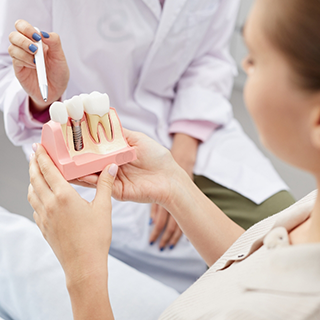
Virtually any adult who has lost one or more teeth can become eligible for dental implants. Here are some traits of an ideal candidate:
- Fair overall health. You should be well enough to recover from minor surgery. You should not be pregnant, and any chronic conditions (like diabetes) should be well-managed.
- Good overall health. It is important that you are free of active gum disease and other oral health problems that might interfere with your implants’ success.
- Adequate jawbone density and volume. Since your implants will fuse with your jawbone, it must be strong enough to support them.
Even if you do not qualify for dental implants right away, your dental implant dentist in Allen, Dr. Kar, may be able to help you qualify after some preliminary treatments, such as gum disease therapy or a bone graft.
Missing One Tooth

Instead of altering the two healthy teeth on either side of the gap in your smile to make room for a dental bridge, one missing tooth can be replaced by a single dental implant. Dr. Kar will place a dental implant where the root of the missing tooth used to be. Later, he will top it with an abutment and a beautiful, custom-made crown. Not only does this replace your missing tooth without damaging the surrounding teeth, but it also promotes a healthier jawbone and provides you with the most natural-feeling tooth replacement possible.
Missing Multiple Teeth
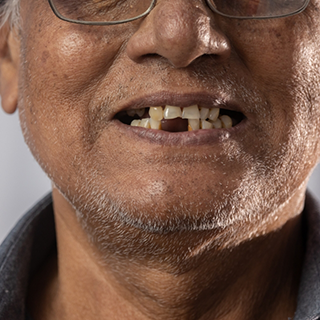
Multi-teeth implants are also known as an "implant bridge." The basic form of this procedure involves placing an implant at each end of the gap, then restoring them with crowns and the appropriate number of pontics (artificial teeth) between them. Rather than replacing multiple teeth separately, an implant bridge requires less time and is extremely effective in preventing bone loss and restoring your smile.
If your missing teeth at different places throughout the mouth, an implant bridge may not be right for you. Instead, you may qualify for a partial denture or a few separate implant-supported crowns.
Missing All Teeth
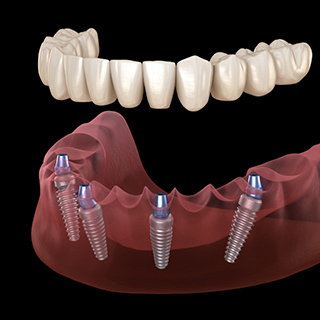
Do you have an uncomfortable or unreliable denture that you just can’t trust to stay in place? With an implant denture, you can finally get a set of teeth you can rely on. The prosthetic teeth are anchored in place using multiple dental implants positioned within the jawbone, and not only is the fit extremely secure, but you can trust it to last as well. Plus, implant dentures restore much more bite strength than traditional ones, enabling you to enjoy a wide variety of foods with ease.
There are a few different types of implant dentures, including permanently fixed All-on-4 prosthetics and implant overdentures. Learn more about them by following the links below.
Understanding the Cost of Dental Implants

Replacing lost teeth with dental implants is a procedure that varies significantly from person to person. Although the cost of dental implants in Allen is higher than that of other forms of tooth replacement, they are a worthwhile investment! During your first consultation, Dr. Kar will be able to better understand your specific needs and provide a confident price estimate. Low-interest financing is available at our office for patients who would like to break down their overall cost into multiple payments. We also have specials that can lower your out-of-pocket costs.
Preliminary Treatments & Dental Implant Surgery

Many patients require gum disease treatment, tooth extractions, or other procedures before they are eligible to receive dental implants. Each of these services comes with its own fee. The dental implant placement surgery incurs a separate cost. Dr. Kar is able to perform this procedure in-house, so you will not have to worry about dealing with the pricing policies of an outside practice for this part of your tooth replacement journey.
The Parts of Your Dental Implant
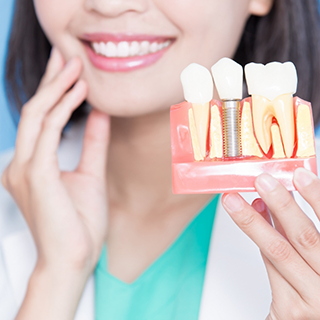
There are a number of different types of dental implants and dental implant procedures. For example, a single tooth implant costs less than an implant bridge or full mouth replacement. All-on-4 dental implants have a different price than a traditional implant denture. Dental implants can also be made out of various materials and come from a range of manufacturers, both of which can affect cost. If more than one type of implant treatment might work for you, our team will help you compare the pros, cons, and price of each option.
How Dental Implants Can Save You Money

The vast majority of individuals who invest in dental implants have no regrets about their decision, especially when they see how their new teeth save them money over time. Not only will your final restoration be functional, strong, and stable, but it will also spare you from having to spend money on treatments like denture relines. Additionally, because dental implants last so much longer than traditional tooth replacement methods, they may cost less over time.
Does My Dental Insurance Cover Dental Implants?
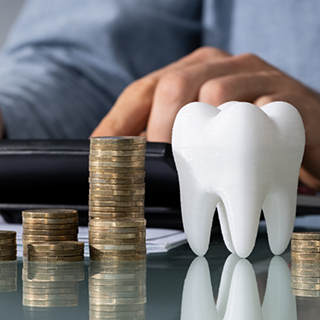
Dental insurance policies vary widely with regard to dental implants, but more and more companies are choosing to provide coverage for this procedure. Even if your plan doesn’t cover the implants themselves, it might cover related treatments, such as a bone graft or your final restoration. Dr. Kar is in-network with many PPO insurance plans as well as with BCBS Medical, and our team will be happy to help you understand, use, and maximize your benefits.
Making Dental Implants Affordable

As your implant dentist in Allen, we want to help you afford your treatment. In addition to assisting you with insurance, we offer a few other provisions that can help you manage the cost of your new teeth:
- Special offers. Enjoy a FREE implant consultation. For a single implant, abutment, and crown, pay only $3299.
- Financing. We work with CareCredit, Sunbit, and Cherry. These third-party lenders offer a range of flexible plans to qualified patients.
- In-house savings plan. Our membership plan provides discounts on most of the services we offer.
Dental Implant Technology
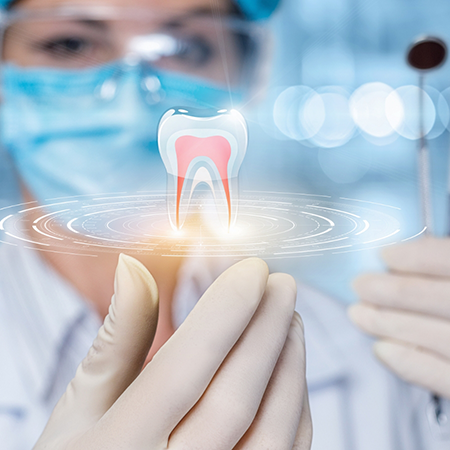
Dental implant treatment is among the most advanced procedures in dentistry, but modern technology can make the process go more smoothly from beginning to end. To ensure your success with tooth replacement, Dr. Kar has equipped our office with cutting-edge technology like a 3D cone beam CT scanner that gives reliable, positive results. If you have questions about our process or technology, don’t hesitate to ask.
3D Cone Beam Imaging
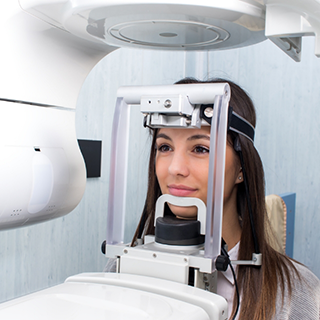
Digital X-rays capture enough information for diagnosing cavities and measuring jawbone density, but 3D cone beam imaging reveals much more detail. Compiling hundreds of images together, the 3D model on the screen gives a more comprehensive view of the oral cavity, showing blood vessels, nerve endings, and other structures that must be considered when planning the complex placement procedure. With this information, Dr. Kar can precisely plan where to put the implant successfully and keep complications to a minimum.
Advanced Dental Implant Procedures
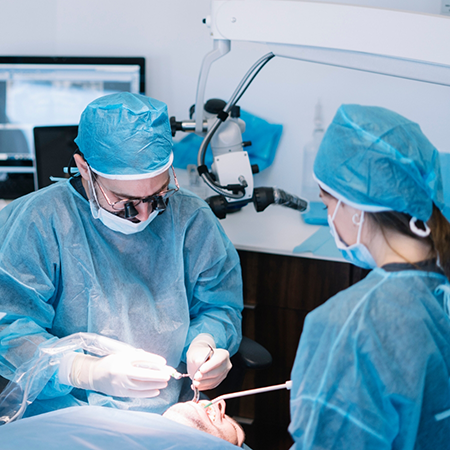
If it has been a while since you lost your teeth, your jawbone may have lost a significant amount of height or density. It might be too weak or thin to support dental implants. Thanks to a bone graft and/or sinus lift, however, you may still be able to experience all of the benefits of a dental implant-supported smile. Both of these procedures help to fortify a patient’s bone and build it up so the implants have the strong base of support they need in order to thrive.
Bone Grafting
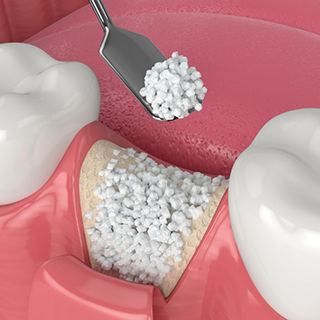
If your jawbone doesn’t have the density to successfully support dental implants, a bone graft can help strengthen it. Often, the bone that is used for the graft comes from a patient’s own body. However, it may also come from a bone bank. In some cases, synthetic material is used. Once the new bone material is grafted onto the weaker parts of your jaw, it will encourage the growth of new bone tissue.
It might be possible for Dr. Kar to place your implants at the same time you receive the bone graft. However, in most cases, you’ll have to undergo a healing period of at least a few months before you can receive implants.
Sinus Lifts
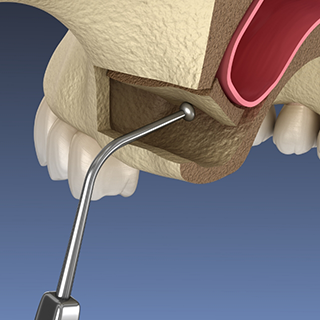
If you are going to receive implants to replace your teeth in the upper jaw, you may need to undergo a sinus lift. Following tooth loss, the sinuses may collapse into the space where the tooth roots once were, leaving just a thin layer of bone between your mouth and the sinuses. The sinus lift procedure gently repositions the sinuses so you can receive a bone graft and eventually experience all the benefits of implants from your dentist in Allen.
Dental Implant Salvage

Dental implant failure is rare, but it can occur for various reasons, including trauma or an infection known as peri-implantitis. If you experience any problems with your dental implants, such as pain, swelling, difficulty chewing, or an implant that feels loose, contact our office right away. Dr. Kar will carefully examine your mouth, pinpoint the cause of your discomfort, and develop a treatment plan to renew your smile’s health and function.
Learn More About Dental Implant Salvage
Dental Implant Post-Op Instructions

After your dental implant surgery, you will have to go through a recovery period. Do not let that prospect frighten you. As long as you follow Dr. Kar’s dental implant post-op instructions in Allen, it is likely that you will experience a smooth and complication-free healing period. Below, you will find some practical guidance to help you out while you are on the mend.
What to Do Directly After Dental Implant Surgery

Blood clots should form at your surgical sites. Since these are a key part of your body’s healing process, you should do all you can to avoid disturbing them. Here are a few tips to that end:
- Do not spit. Instead, swallow excess saliva or use tissues to absorb it.
- Do not use drinking straws or smoke cigarettes. The suction action could dislodge the blood clots.
- Do not touch your surgical sites. You might be tempted to feel your incisions with your tongue or fingers. However, you should avoid doing so.
Common Side Effects

During the initial part of your recovery, you may experience:
- Intermittent bleeding. This can usually be controlled with clean gauze and light pressure.
- This may worsen over the first 72 hours. However, you can keep it to a minimum by using cold compresses.
- General discomfort. Pain medication, as well as getting plenty of rest, may alleviate this.
If you experience any severe or unusual side effects, call your implant dentist in Allen right away.
Diet

At first, you should stick to a no-chew diet. This may encompass things like applesauce, mashed potatoes, smoothies, and brothy soups. After some time, you may progress to fork-tender foods, such as scrambled eggs, meatloaf, soft breads, and other items that are easy to cut with the side of a fork. Once your soft oral tissues have recovered fairly well, you may be able to resume a normal diet. You should abstain from alcohol for as long as you are taking pain medications (or as long as Dr. Kar recommends).
Health & Oral Hygiene
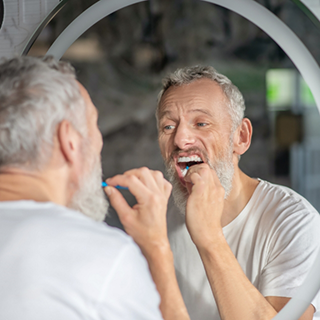
It is fine to brush your teeth the day after your surgery, but you should be extra-cautious around your surgical sites. Rinsing your mouth a few times each day with salt water can help to manage inflammation and swelling. If you have a prescription mouthwash, be sure to use it as directed.
What to Do After Your New Teeth Are Attached

After your prosthetic teeth are attached to your dental implants in Allen, you might notice some gum tenderness and sensitivity. However, you should not experience any significant bleeding or swelling. No downtime will be required. At first, your new teeth may feel strange in your mouth, but you can expect to adjust fairly quickly.
Maintaining & Caring for Your Dental Implants

Once you choose dental implants as the solution to recomplete your smile, it’s vital to follow our aftercare instructions. After all, dental implants in Allen are an investment that have the potential to last a lifetime if you take the proper precautions. At Advanced Dental Care of Allen, we want to make sure that you’re getting the most out of them. Thankfully, taking care of a dental implant is easy. Here are some guidelines on what you need to do:
Make Oral Hygiene a Priority

Proper oral hygiene plays a large role in dental implant care in Allen. Not only does it help to keep your mouth fresh, but it also reduces your risk of dangerous infections. You should:
- Brush your teeth twice a day with a soft-bristled brush.
- Floss at least once daily.
- Follow any hygiene instructions that are specific to your restoration. For example, if you have a removable implant denture, you should take it out of your mouth for regular cleaning.
Eat a Healthy Diet

Dental implants can enable you to eat virtually any food, including all of your favorite treats. However, just like natural teeth, some foods are better for them than others. For example, it would be wise to avoid overindulging in hard, sticky, or sugary foods. Instead, try to enjoy a diet that consists of plenty of foods that support oral health, including those that are rich in calcium and vitamin C.
Break Bad Habits

Some bad habits that can adversely affect dental implants include:
- Smoking and chewing tobacco. These can slow down healing after oral surgery and increase your risk of implant failure. Admittedly, breaking free from tobacco addiction can be challenging, but all of your efforts will be worth it when you finally succeed!
- Chewing on ice or other hard objects. You might accidentally break your implant restorations. You also run the risk of injuring your gum tissue.
Protect Your Dental Implants
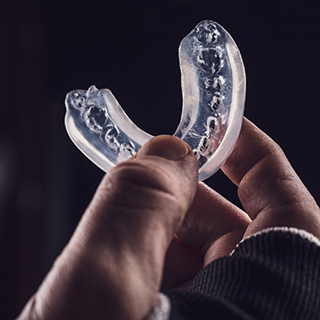
If you play sports, you should always wear a mouthguard to prevent injury both to your oral tissues and your dental implants. A custom mouthguard from a dentist is more effective than any that you could buy over the counter.
Similarly, you should wear a nightguard to prevent bruxism if you tend to grind your teeth at night. A nightguard will prevent your top and bottom teeth from contacting one another and causing mutual harm.
Schedule Regular Dental Checkups
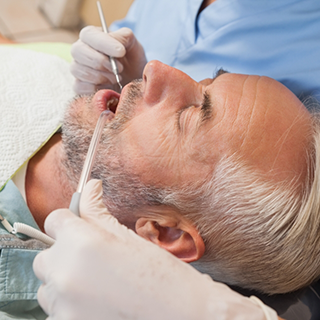
Scheduling an appointment with your implant dentist in Allen, Dr. Kar, every six months or so has some remarkable benefits. Not only will Dr. Kar check your implants for signs of developing problems, but he will also give you personalized advice to help you protect them for the long haul. Additionally, our team will thoroughly clean your mouth; we will likely remove your implant restorations so we can clean your abutments.
Dental Implant FAQs
Does it hurt to get dental implants?
During your implant placement surgery, you should be quite comfortable. Dr. Kar offers various types of sedation to ensure that patients feel little to nothing during this phase of treatment. After your surgery, your mouth may be sore for a while, but our team will provide you with tips to make your recovery as smooth and comfortable as possible.
Once your restorations are in place, it might take your mouth a bit of time to get used to them, particularly if it has been a while since you lost your natural teeth. However, the adjustment period is usually very short. Before long, your implants will feel like a natural part of your smile.
What is involved in restoring dental implants?
Creating functional, beautiful dental implant restorations is much more complex than it may seem at first. A poorly designed restoration can interfere with your bite and lead to painful jaw problems and an increased risk of damage to your natural teeth. As a prosthodontist, Dr. Kar has an in-depth understanding of how to design restorations in a way that produces optimum results. He will take detailed images of your mouth and the surrounding structures. He’ll also analyze the way your teeth fit together. His careful planning will ensure that your restored smile is both comfortable and highly functional.
Of course, aesthetics are also a priority of Dr. Kar’s. Your new teeth will blend in seamlessly with the natural dentition around them. Their shape and size will perfectly complement your natural orofacial structures; they won’t look bulky or overdone. Onlookers will have no way of knowing that you ever had any missing teeth.
What if I run into a problem with my dental implant?
Dental implants in Allen are successful in the vast majority of cases, but sometimes problems do occur. For example, a misstep in oral hygiene may lead to an infection around an implant, or a dental trauma may cause an implant to become loose. If you ever encounter any issues with your dental implants, contact our office right away. During your appointment, Dr. Kar will determine the cause of the problem and design a treatment plan to get your smile back to feeling its best in as little time as possible.
Of course, prevention is the best way to address dental implant problems. We’ll provide you with detailed guidance on how to care for your restored smile. If you’re diligent about following our instructions, and you attend regular checkups with Dr. Kar, it’s very unlikely that you’ll ever have to deal with serious problems with your dental implants.
Can I still get dental implants if I smoke?
Smoking slows down the body’s healing time and has a direct, negative impact on oral health. It increases the risk of dental implant failure. However, that doesn’t mean that individuals who smoke cannot receive dental implants. During your consultation, Dr. Kar will make a personalized treatment recommendation based on your unique health and circumstances.
